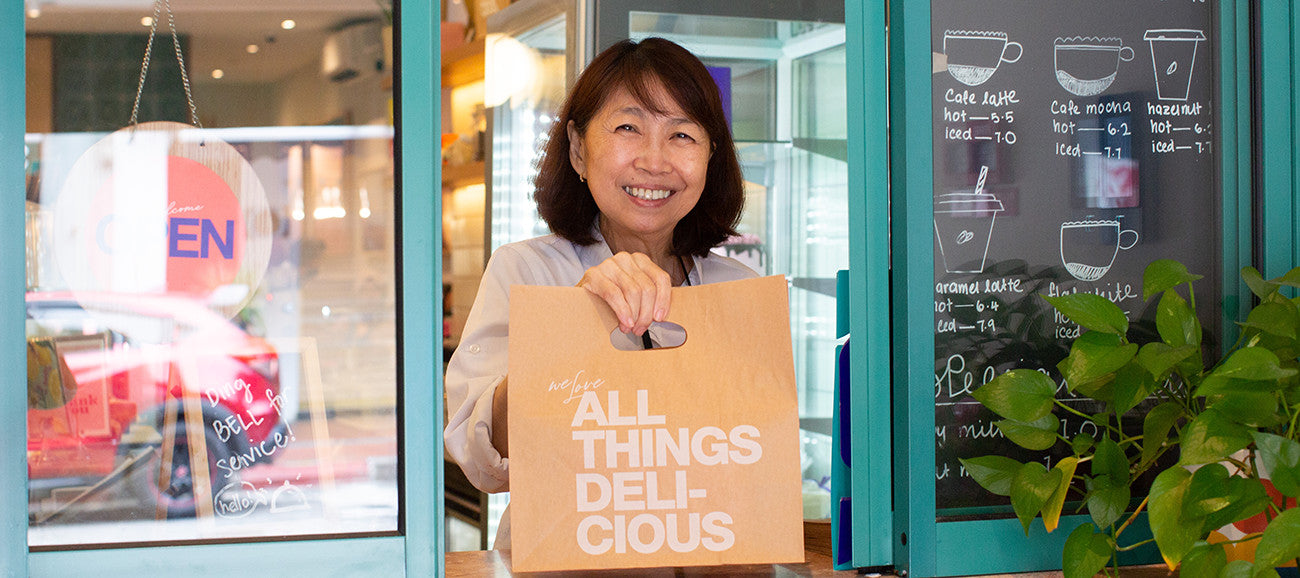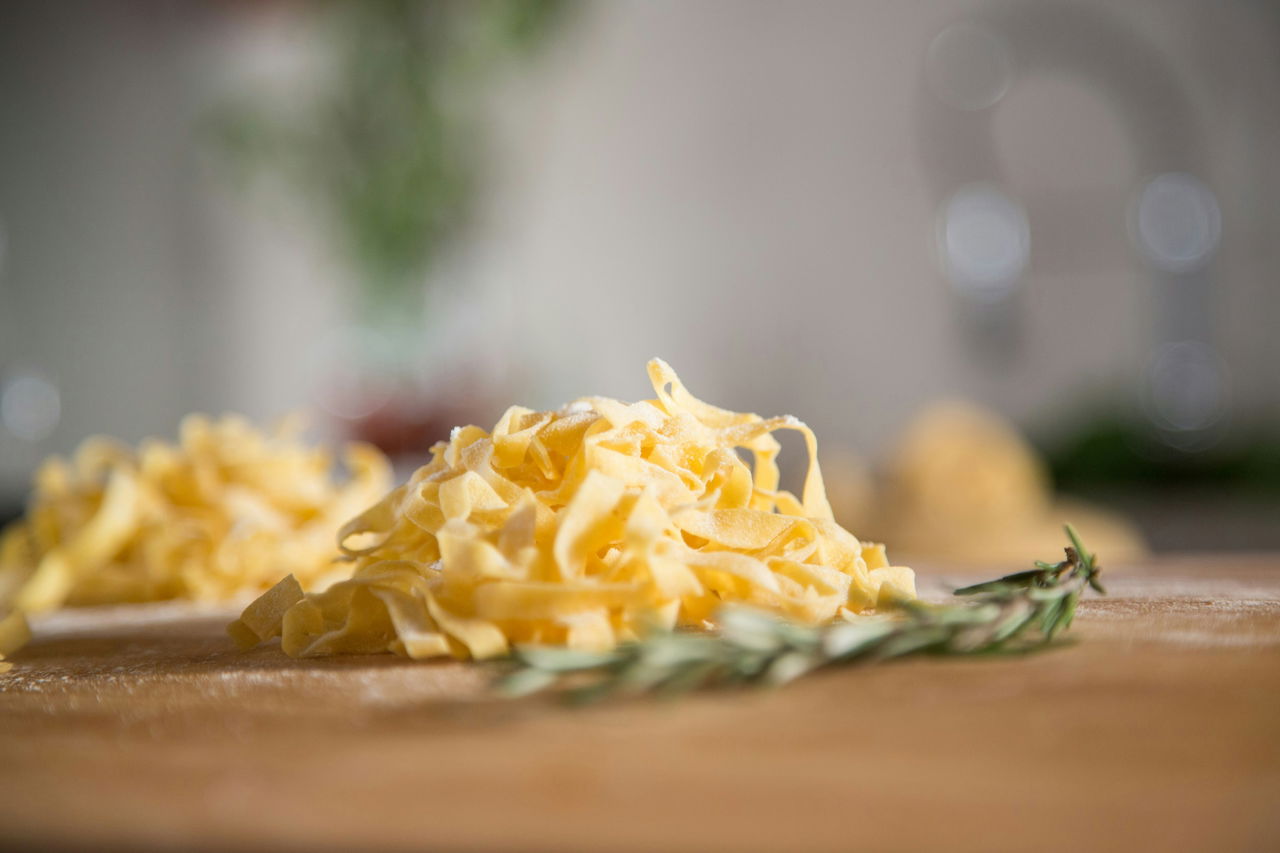In contrast, if the pasta looks overly yellow or almost amber, it may have been dried too quickly at ultra-high temperatures. This rushes production but sacrifices the pasta’s texture and nutritional integrity.
The pasta in our Coriander Pesto Seafood with Caramelised Chillis Tray strikes just the right balance—its delicate hue hints at the quality within, while its subtle chew holds up to the bright, herbaceous pesto.
Smooth, shiny pasta? That’s often made with Teflon dies, which produce more pasta in less time but result in noodles that don’t hold sauce nearly as well.
If you’ve tried our Creamy Smoked Salmon Pasta Tray, you’ll know the difference—our pasta captures every bit of that smoky, creamy sauce in every twirl.
A quick tip: check the cook time on the package. Quality pasta often needs a bit more time—because the wheat is denser, thanks to slow drying at low temperatures. This traditional method (sometimes over 24 to 48 hours) locks in flavour and improves texture. Mass-produced pasta, on the other hand, is dried quickly under high heat, which saves time but compromises taste and structure.
Similarly, fresh herbs elevate the pasta dish with their vibrant aromas and flavors. Dried herbs can work in a pinch, but the freshness of herbs like basil, parsley, or oregano can make all the difference. They should be added towards the end of cooking to retain their brightness and avoid being overcooked.





